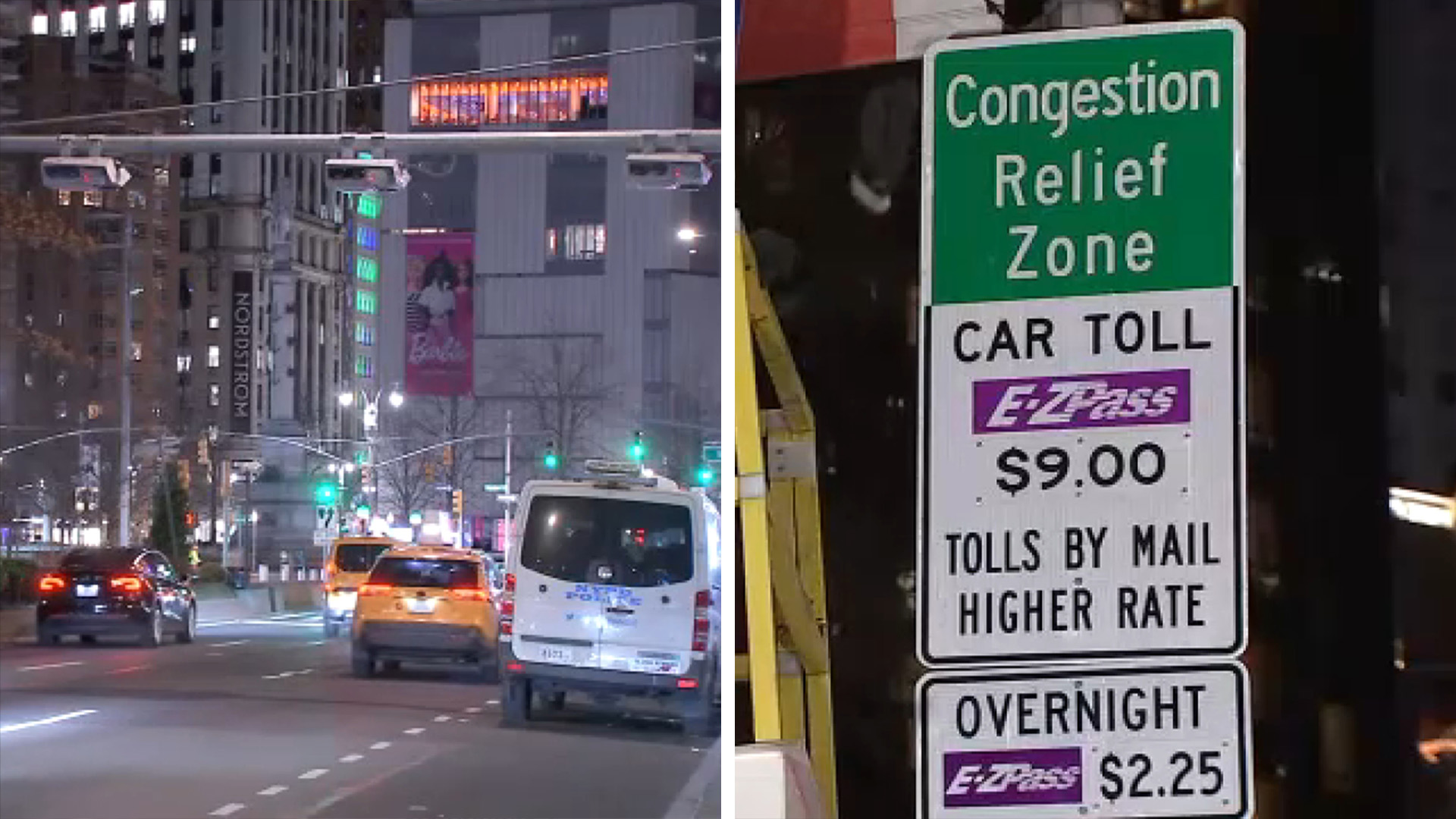Photo via ABC7 New York
***
On January 5, 2025, New York City implemented its congestion pricing program. The program regulates traffic entering an area of Manhattan known as the Congestion Relief Zone, where most drivers will be charged $9 to enter during “peak hours,” or from 5 AM to 9 PM on weekdays and from 9 AM to 9 PM on weekends. Outside of these hours, tolls will be 75% lower. Included in the congestion zone are 60th Street and below, and the tunnels and bridges that lead into the section of that city.
The plan has three main goals: to clear up traffic on the city’s busiest streets, reduce air pollution, and fund New York’s public transit system by up to one billion additional dollars per year. These are all pressing issues, as New York ranks as the fifth most congested city in the world, and the most congested city in the United States. Additionally, air pollution in the city disproportionately affects underprivileged communities. The Mass Transit Authority, or MTA, the New York metropolitan area’s public transportation service, is underfunded due to multiple factors, including declining ridership, lack of state funds, and insufficient toll revenue.
The benefits of congestion pricing are already evident. The first phase of the plan is expected to bring in $40 million per month, $11 million of which will be used for expenses such as setting up toll cameras and environmental projects associated with pollution from changing traffic patterns. The rest of the revenue can be allotted to repairing the transit system. The program is also on track to meet its goal of $15 billion raised for necessary transit repairs. Additionally, there has been a significant reduction in vehicles commuting into the congestion zone, resulting in quicker commute times and—you guessed it—less congestion. Subway ridership and foot traffic in the congestion zone have also increased.
Despite these successes, U.S. President Donald Trump poses a major threat to the future of congestion pricing. For decades, Republicans have claimed to be the party of federalism and “state’s rights.” This stems from the Tenth Amendment to the U.S. Constitution, which states that all rights not delegated to the federal government are reserved for the states. However, in Trump’s second term, the administration has made clear that opposition on major policies to Washington’s agenda by the states will be contested in court, and if necessary, they will resort to funding cuts to get their way.
This has already been evident with the Trump administration’s attempts to withhold disaster aid from California to deal with the devastating wildfires they experienced in January, and in his clash with Governor Janet Mills of Maine in the White House over her support of transgender athletes continuing to play in the state.
Trump has now placed his ire on New York and congestion pricing, as the administration has set March 21 as a deadline for an end to the program. They argue that it is an unnecessary burden on working-class drivers, and that their use of the funds to improve public transit instead of the highway system invalidates the program.
The MTA has responded by rejecting their request and has stated they will continue congestion pricing unless a federal judge orders them to stop. They have also filed a lawsuit, stating only the recipient of federal authorization can unilaterally end the program. Like California and Maine, the threat of the federal government withholding funds if Trump does not get his way is grave.
There are many potential reasons Trump could take issue with a program designed to increase mobility and living standards for poor New Yorkers. The airline, oil and gas, and automotive industries were all significant donors to Trump during his 2024 presidential campaign, and they all stand to gain greatly by having more cars on the road and less investment in public transit.
Additionally, nearly 70% of contributions to Trump’s 2024 campaign were classified as large contributions, or over $200, and Trump has associated himself with billionaires early in his presidency, including Elon Musk, who owns Tesla, an electric car company. New York is also one of the most unequal cities in the country, and this inequality is exemplified in vehicle ownership in the city. Only about 45% of New York City households own a car, and the average non-car owner makes about half as much as the average car owner in the city. Unsurprisingly, Trump is eager to side against a program that disproportionately benefits poorer members of the city.In a Morning Consult poll, six in ten New Yorkers say President Trump should allow congestion pricing to continue, and on a two-to-one basis, New Yorkers say the program is working. But the will of New Yorkers does not matter to the Trump Administration, and thus New York’s embrace of federalism is an act of defiance against an administration constantly pushing the boundaries of its power.
